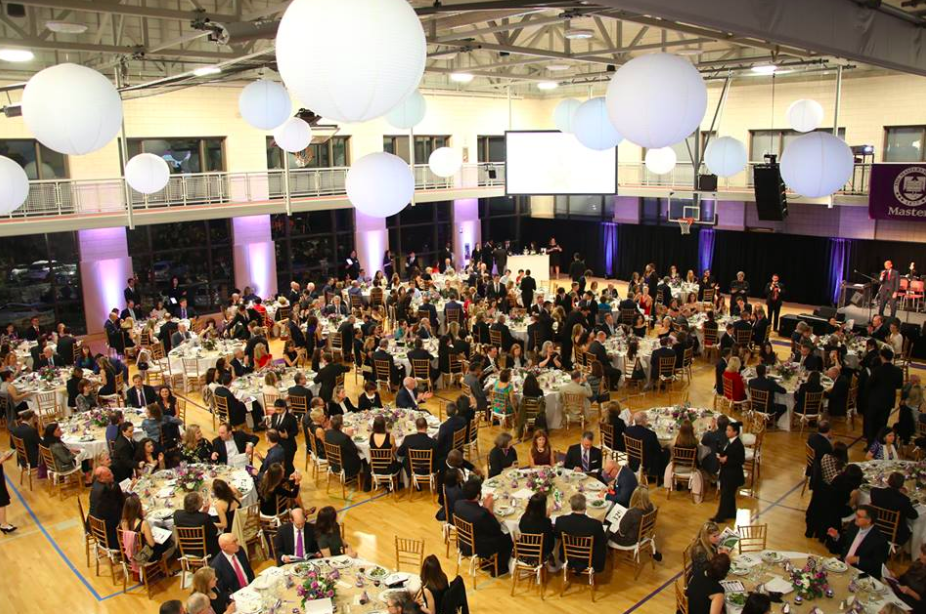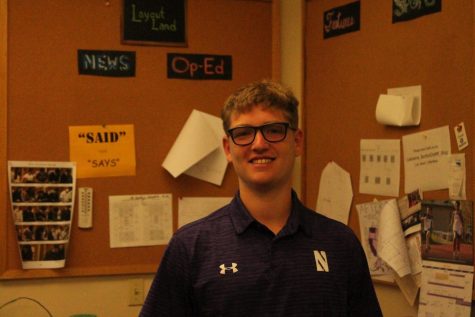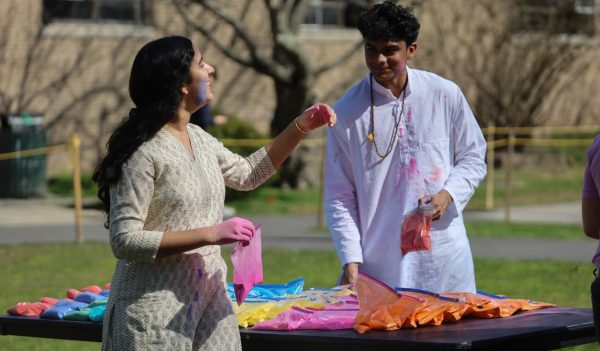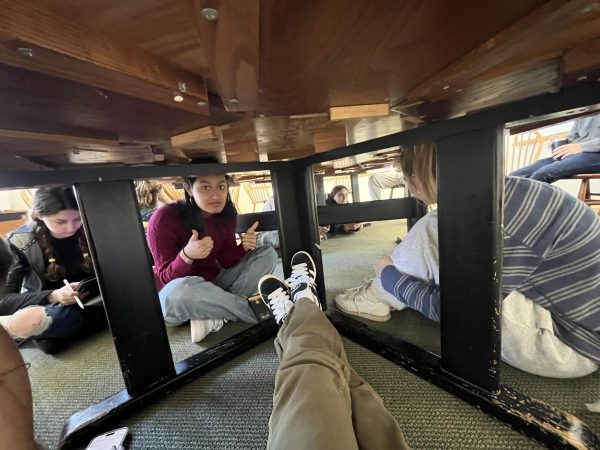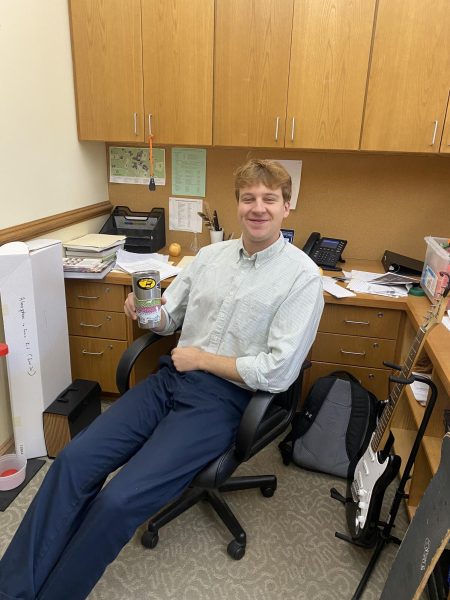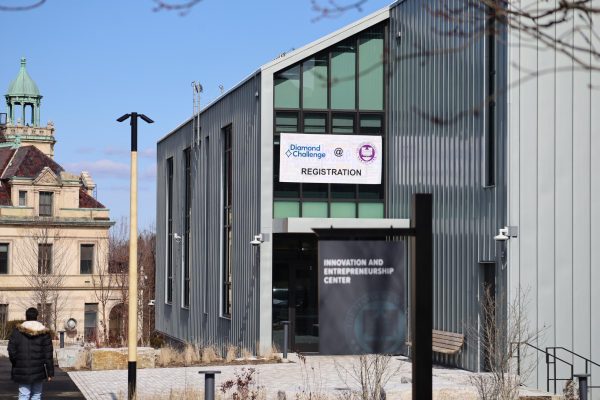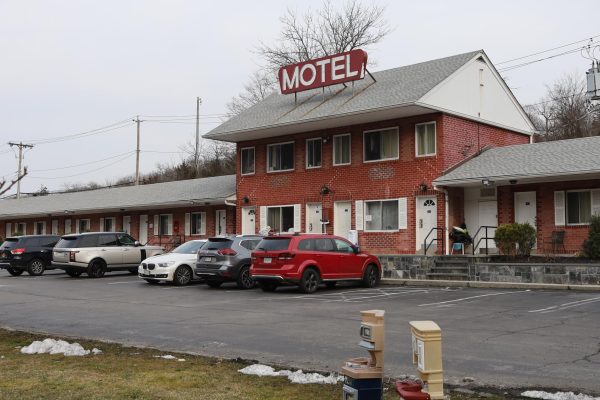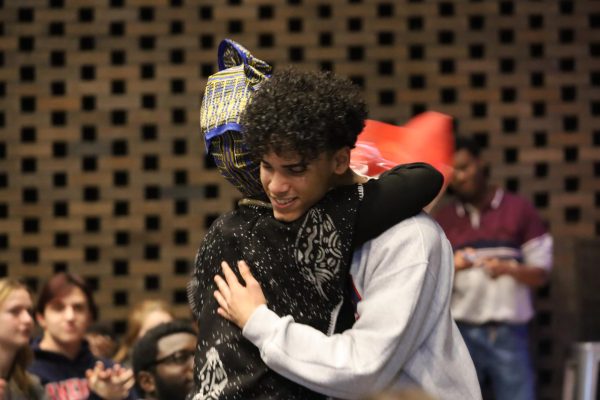Spring Gala looks to impact community and sustainability
April 30, 2017
After a three year hiatus, The Masters School’s Spring Gala occurred on Apr. 27 at the Maureen Fonseca Center. The gala’s main objective was to engage the school community by inviting all parents, faculty, staff, alumni, and trustees to join in community participation and inclusion, while also reinvesting proceeds from the event into Masters’ programs, faculty, and campus. Additionally, the school raised funding for environmental projects on campus that will aid energy efficiency and lower the school’s carbon footprint, synonymous to the gala’s theme of “Sustaining the Future.” Since the gala occurred on campus for the first time in its history, the gala included numerous aspects of the community, including performances by Dobbs 16 and the Jazz Band.
For the event’s 2017 resurrection, Head of School, Laura Danforth, believed that it was a priority that the gala be located on campus to not only allow for alumni to return, but also to create an easy opportunity for faculty and staff to attend the gala.
“The gala is twofold: it is bringing together people who love this community and people who want to support this community through relationships with one another and resources. In simpler terms: it is a party with a purpose,” Danforth stated.
At the previous three galas from 2010-2014, the administration focused on securing funds for faculty salary and development objectives. However, because those objectives are partly encompassed by the Annual Fund, Danforth was able to select a goal that related to this school year’s theme for the gala’s focus: “Sustaining the Future.”
“It is important to continue what we have done as a school regarding our awareness and education about sustainability along with, continuing to benefit it on our campus,” Danforth said.
To aid in achieving the theme of “Sustaining the Future,” Keryn Mathas, one of the co-chairs of the gala, cited how each invitation was printed on recycled paper and EFFECT members were utilized to create sustainability fact cards for each table at the event.
In the hopes of expanding the campus’ environmental efficiency, Masters wishes to utilize the earnings to fund two projects: the replacement of the campus-wide boiler system and the addition of new HVAC (Heating, Ventilation, and Air Conditioning) systems in the girls dorms; the project’s combined cost is almost $1.5 million.
Replacing Masters’ boilers, costing more than $600,000, would consist of replacing the boilers to burn multi-fuel capabilities such as higher grade oil and natural gas. Traditionally, Masters has burned #6 oil, a cost effective, yet dangerously polluting fuel that in January 2018, will be entirely banned from Westchester County due to its environment dangers. “Number 6 oil is in the sixteen largest ships in the world; the fuel of those sixteen ships generates more sulfur emissions than every car in the world. When we convert to a multi-fuel capability, there will be a great positive change in our carbon footprint,” said Ed Biddle, Masters’ Chief Financial Officer.
Additionally, the HVAC units in the girls dorms are expected to be replaced with a modern heat pump system that can produce heat and air conditioning efficiently. Biddle further mentioned that the $300,000 project (per dormitory) has successfully piloted in a sector of McCormack Dorm; the administration hopes to implement new HVAC systems in McCormack, along with Cole and Ford dorms over the summer.
In total, the gala’s attendees topped 500 people in one of the largest community events for Masters. Additionally, Christina Camardella, Director of Development and Engagement Programs reported that the gala’s pre-donations were $400,000; a representation of the Masters community rallying around its re-inception.
“This gala would not have been possible without the donations and gifts of numerous individuals dedicated to making this night happen. We had to count on them to make this possible and thankfully, this gala will be able to support not only the Masters community, but also our future sustainability initiatives,” Associate Head of School Timothy Kane said.




